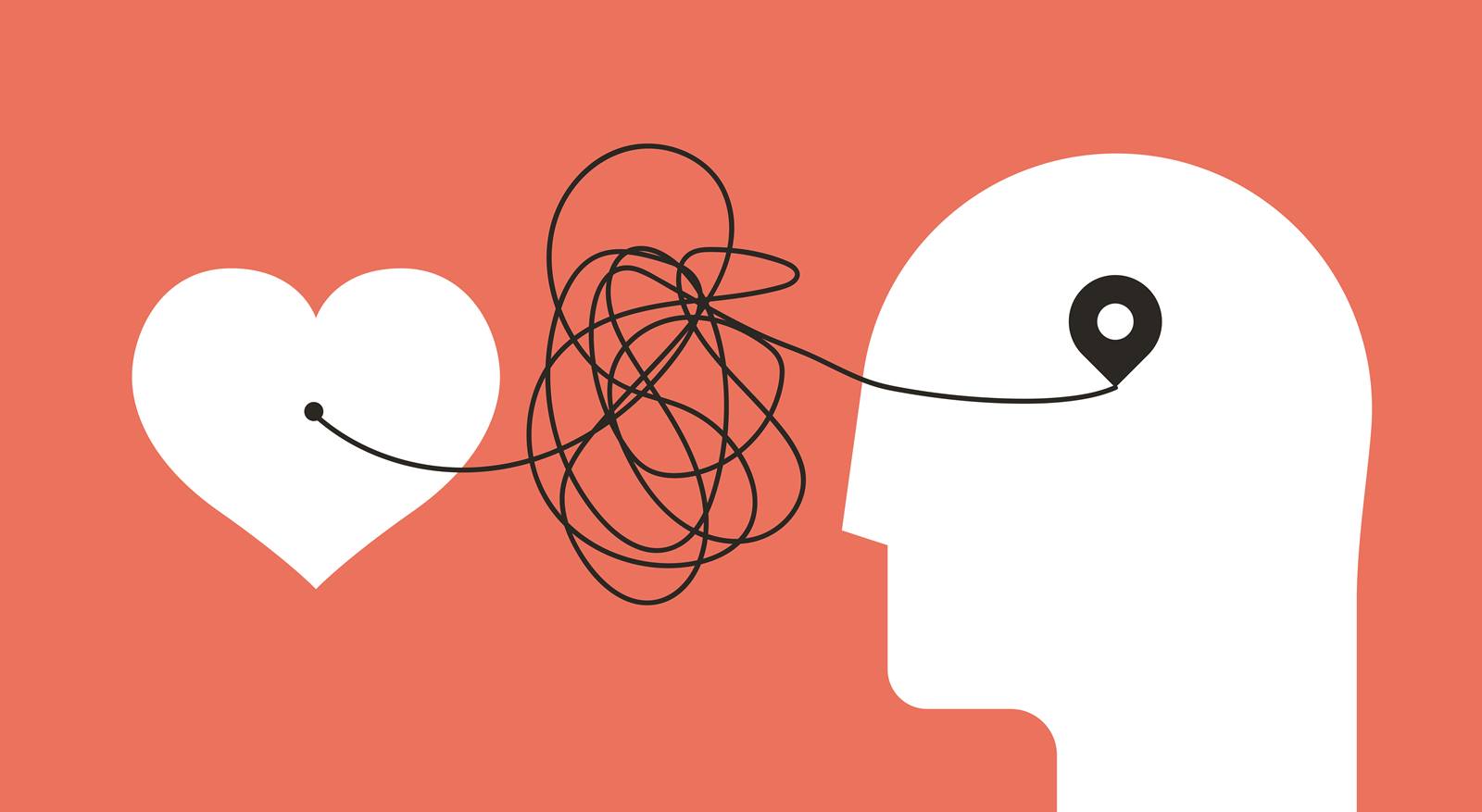With about a year of COVID-19 under our belts, Americans have endured what seems like the impossible. Lost jobs, lonely holidays and stay-at-home orders have taken a toll on us. We feel lonely, sad, bored, and afraid of what is to come. With these comes anxiety and depression. According to a survey led by Boston University conducted in March-April of 2020, 27.8% of people had depression symptoms compared to the 8.5% that had symptoms pre-COVID-19.1 Since the pandemic hit, depression has tripled in the United States.2 Not only are these feelings overwhelming on our emotional health but taking a major impact on our heart health as well.
When a person is depressed, the anxiety triggers the stress hormones, as talked about in our blog about how stress affects the heart. These hormones cause inflammation to occur, building up plaque in the arteries and therefore, increase the risk for heart disease. This means decreased blood flow to the heart and an increase in cortisol. People with depression are also less likely to follow a healthy diet, exercise, and medication plan. It is much easier for someone who is depressed to reach for processed foods, alcohol or smoking to temporarily sooth their pain.3 These habits lead to obesity and type two diabetes, the main precursors for heart disease.
If your occasional bad day turns into a bad week, or month of even year, you may be fighting depression and not even know it. Knowing the warning signs of depression can keep you or your loved ones from causing permanent damage to their heart. A few common signs of depression include:
- Loss of interest in things that once gave you joy
- Feelings of loneliness, guilt, sadness, or worthlessness
- Too much sleep or not enough sleep
- Loss of appetite or overeating
- Fatigue and brain fog4
If you are feeling any of these symptoms, it is important to address them. While pushing your feelings away and keep them bottled up inside may seem like an easier solution, facing them head on is what avoids the detrimental affects of heart disease. Include some of these depression-fighting habits into your day:
- Adopt mindfulness. Mindfulness helps to rewire the way that you think. It focuses mostly on being aware of the present, and not worrying about the future or dwelling on the past. This is a tactic that takes daily practice and time to conquer.
- Reach out to family and friends. When feeling symptoms, talking through issues, thoughts, and feelings with someone who is close to you can ease the stress of the matter.
- Take care of yourself. Eating a well-balanced diet, regular exercise and sufficient sleep can boost your mood and your physical health.5
- If the depression symptoms worsen, do not hesitate to get help. Talk to a professional or, if you are constantly thinking about death, call the suicide hotline at 800-273-8255.
Depression is a common and life-threatening disease. While the signs and symptoms per person, it is important to evaluate yourself for feelings of anxiety and depression. Talking to a professional or doing stress-relieving strategies are important to incorporate into your daily regimen. Please visit our website for help in creating a health and wellness routine to help lift your spirits today!
In Health,
Hillary Rotunda

Starting from when she was a little girl, Hillary’s passion has always been in living a healthy way of life through movement and eating right. She played many sports when growing up but ended up sticking with volleyball and softball through college at Concordia College in Moorhead. While at Concordia, she earned a double major in exercise science and nutrition, graduating in 2015. After moving to the cities from my long-time home of the Fargo area, she was not quite sure what her passion was until she started working as a personal trainer. She learned from brilliant personal trainers and physical therapists, which led to her discovery of corrective exercise being her passion. She has decided to finish up the classes needed to apply for physical therapy school, which she plans on doing soon! She is excited to be at Live Your Life Physical Therapy to learn as much as she can from Dr. Norman and all the physical therapist on staff!
References
1Catherine K. Ettman. “Prevalence of Depression Symptoms in US Adults Before and During the COVID-19 Pandemic.” JAMA Network Open, JAMA Network, 2 Sept. 2020, jamanetwork.com/journals/jamanetworkopen/fullarticle/2770146/.
2Van Beusekom , Mary. “Depression Triples in US Adults amid COVID-19 Stressors.” CIDRAP, 3 Sept. 2020, www.cidrap.umn.edu/news-perspective/2020/09/depression-triples-us-adults-amid-covid-19-stressors.
3Preidt, Robert. “Depression May Be Linked to Heart Failure.” WebMD, WebMD, 4 Apr. 2014, www.webmd.com/depression/news/20140404/depression-may-be-linked-to-heart-failure.
4“Signs and Symptoms of Clinical Depression.” WebMD, WebMD, 30 June 2020, www.webmd.com/depression/guide/depression-symptoms-causes#1.
5How to prevent depression: Tips & strategies for prevention. (2019, September 17). Retrieved February 19, 2021, from https://www.webmd.com/depression/understanding-depression-prevention

